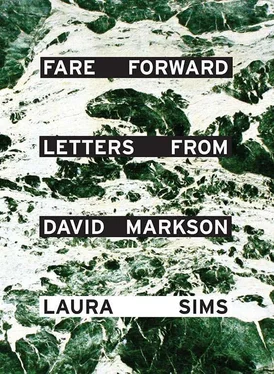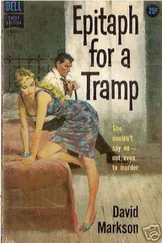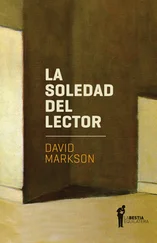Human Comedy.
(viii)
Which leads us to consider Writer’s intention to write “a work of art without even a subject,” “with no politics,” and “no picture of society.” Do Markson’s books adhere to this guideline, at least?
On the foul influence of religion on human nature:
Burn down their synagogues. Banish them altogether.
Pelt them with sow dung. I would rather be a pig than a Jewish Messiah.
Amiably pronounced Luther.
I told you not to go with drunken goy ever.
Says the ghost of Leopold Bloom’s father. (
TINN,
156)
On poverty (as it strikes artists and writers most particularly) in The Last Novel :
The big tragedy for the poet is poverty.
Said Patrick Kavanagh.
Try to get a living by the Truth — and go to the Soup Societies.
Lamented Melville rather earlier. (
TLN,
132-3)
On the historical role of women in society, particularly in the world of letters (also from The Last Novel):
The greatest achievement for a woman is to be as seldom possible spoken of, said Thucydides.
Who mentions not one of them in his history.
Johnson’s
Lives of the Poets
— which mentions none either. (TLN, 107)
A work of art without a subject, indeed.
On looking closer, then, Markson employs many familiar elements of the novel that Writer wants to eschew, but he employs them in radically altered form, which in turn changes the shape of the novel, making it almost unrecognizable to the uninitiated reader. Thus, he still manages to bust “our idea of a [novel] all to hell,” but he does so, wisely, without destroying the genre altogether.
Significantly, Writer himself revises his convictions towards the end of the book, as if, in looking back on the previous pages, he recognizes that certain trademarks of fiction may, after all, be unavoidable:
It is the business of the novelist to create characters. Said Alphonse Daudet.
Action and plot may play a minor part in a modern novel, but they cannot be entirely dispensed with.
Said Ortega.
If you can do it, it ain’t bragging.
Or was it possibly nothing more than a fundamentally recognizable genre all the while, no matter what Writer averred?
Nothing more or less than a
read?
Simply an unconventional, generally melancholy though sometimes even playful now-ending read?
About an old man’s preoccupations. (
TINN,
189)
The Dizzy Dean quote seems muted here, sandwiched in-between these ambivalent revisions. But if what we have witnessed is not, after all, an eradication of the novel form, it is at the very least a significant reinvention, and therefore gives Markson just cause to brag.
*
Form in Markson’s novels may be the most recognizably open and experimental element of all. Writer (of This Is Not a Novel) lists a set of interesting choices for naming this indeterminate form throughout that volume, albeit in sarcastic response to the reviewer who called Reader’s Block “ not a novel”:
An epic poem (
TINN,
21)
A set of cantos (
TINN,
23)
A mural (
TINN,
36)
An autobiography (
TINN,
53)
A continued heap of riddles (
TINN,
70)
A polyphonic opera (
TINN,
73)
A disquisition on the maladies of the life of art (
TINN,
86)
An ersatz prose alternative to
The Waste Land (TINN,
101)
A treatise on the nature of man (
TINN,
111)
A contemporary variant on the Egyptian Book of the Dead (
TINN,
147)
A kind of verbal fugue (
TINN,
170)
A classic tragedy (
TINN,
171)
A volume entitled
Writer’s Block (TINN,
173)
A synthetic personal
Finnegan’s Wake (TINN,
185)
The most appealing and accurate of these may be: “a kind of verbal fugue,” and it is one with some history in literature, as Markson himself points out:
The death of Patroclus,
Iliad
XVI:
Even as he spoke, the shadow of death came over him.
His soul fled from his limbs and went down to the house of Hades, bemoaning its fate, leaving manhood and youth.
The death of Hector,
Iliad
XXII:
Even as he spoke, the shadow of death came over him.
His soul fled from his limbs and went down to the house of Hades, bemoaning its fate, leaving manhood and youth. (
TINN
, 41)
Each volume of Markson’s tetralogy could be described as fugue-like in structure; actual lines, particular sentence structures, or sentences focused on the same subject matter repeat within each book, such as the following from Vanishing Point :
Kuesnacht, near Zurich, Carl Jung died in. (
VP,
40)
Rome, Ingeborg Bachmann died in. (
VP,
45)
Phoenix, Arizona, Frank Lloyd Wright died in. (
VP,
49)
Herefordshire, Jenny Lind died in. (
VP,
52)
As evidenced by the above quotes, Markson often inverts the natural sentence structure, reversing the order of subject and predicate. In the following lines, in a slight twist on this sentence organization, the predicate comes first in its own fragment, and is followed by the subject in a separate fragment:
Morningless sleep.
Epicurus called death.
…
An unpurchasable mind.
Shelley credited himself with. (
TINN,
116)
Latin, French, Italian, and Flemish.
Rubens wrote letters in. (
TINN,
117)
Apart from helping to create the fugue-like echo, this reversal of traditional sentence structure acts as a tiny suspense-builder, leaving the famous subject’s name until the very last, so that our sense of wonder is preserved until the end of the sentence.
The term “fugue” could also apply to the complex threading of lines that repeat exactly or echo one another through all four books, so that each book stands on its own but is clearly part of a larger whole. Because of this, the reader must remain attentive and active when reading the tetralogy, constantly connecting the lines/fragments/quotes not only with their immediate neighbors, but also with lines from previous books, including Markson’s earlier works.
For instance, if one has read Wittgenstein’s Mistress (Dalkey Archive Press, 1988), the book just before Reader’s Block, one knows that Kate, the narrator, is, or believes herself to be, the last creature on earth.
In the beginning, sometimes I left messages on the street.
Somebody is living in the Louvre, certain of the messages would say. Or in the National Gallery.
…
Nobody came, of course. Eventually I stopped leaving the messages.
(WM,
7)
But her loneliness also echoes through the subsequent books, in each narrator’s different, but similar solitude:
Nobody comes. Nobody calls. (
RB,
11)
Someone will call. Surely someone will call. (
RB,
24)
Nobody comes. Nobody calls. (
TINN,
186)
Nothing happens, nobody comes, nobody goes, it’s awful!
Says Estragon. (
VP,
68)
Nobody comes. Nobody calls. (
VP,
162)
Novelist’s isolation — ever increasing as the years pass also.
Days on which he is aware of speaking to no one at all, for example, except perhaps a checkout clerk, or his letter carrier, or some basically anonymous fellow tenant in the elevator. (
Читать дальше












